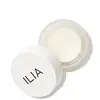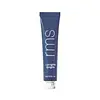What's inside
What's inside
 Key Ingredients
Key Ingredients

 Benefits
Benefits

 Concerns
Concerns

 Ingredients Side-by-side
Ingredients Side-by-side

Caprylic/Capric Triglyceride
MaskingMango Butter Dimer Dilinoleyl Esters/Dimer Dilinoleate Copolymer
EmollientCapryloyl Glycerin/Sebacic Acid Copolymer
Skin ConditioningBis-Diglyceryl Polyacyladipate-2
EmollientPolyglyceryl-10 Decaoleate
Skin ConditioningPolyglyceryl-10 Pentaoleate
EmulsifyingPolyglyceryl-10 Pentaisostearate
EmollientC10-18 Triglycerides
EmollientButyrospermum Parkii Butter
Skin ConditioningCera Alba
EmollientGlyceryl Stearate Se
EmulsifyingHydroxystearic Acid
CleansingAroma
Cocos Nucifera Oil
MaskingLactobacillus/Papaya Fruit Ferment Extract
AbrasiveSilica
AbrasivePolyhydroxystearic Acid
EmulsifyingRicinus Communis Seed Oil
MaskingCarica Papaya Seed Oil
HumectantSodium Hyaluronate
HumectantTocopherol
AntioxidantHydrogenated Castor Oil
EmollientStevia Rebaudiana Leaf/Stem Extract
MaskingGardenia Taitensis Flower Extract
Skin ConditioningSalicornia Herbacea Extract
Skin ConditioningUndaria Pinnatifida Extract
Skin ConditioningGeraniol
PerfumingLimonene
PerfumingLinalool
PerfumingCI 77891
Cosmetic ColorantCaprylic/Capric Triglyceride, Mango Butter Dimer Dilinoleyl Esters/Dimer Dilinoleate Copolymer, Capryloyl Glycerin/Sebacic Acid Copolymer, Bis-Diglyceryl Polyacyladipate-2, Polyglyceryl-10 Decaoleate, Polyglyceryl-10 Pentaoleate, Polyglyceryl-10 Pentaisostearate, C10-18 Triglycerides, Butyrospermum Parkii Butter, Cera Alba, Glyceryl Stearate Se, Hydroxystearic Acid, Aroma, Cocos Nucifera Oil, Lactobacillus/Papaya Fruit Ferment Extract, Silica, Polyhydroxystearic Acid, Ricinus Communis Seed Oil, Carica Papaya Seed Oil, Sodium Hyaluronate, Tocopherol, Hydrogenated Castor Oil, Stevia Rebaudiana Leaf/Stem Extract, Gardenia Taitensis Flower Extract, Salicornia Herbacea Extract, Undaria Pinnatifida Extract, Geraniol, Limonene, Linalool, CI 77891
Hydroxystearic/Linolenic/Oleic Polyglycerides
EmollientTheobroma Cacao Seed Butter
EmollientHelianthus Annuus Seed Oil
EmollientButyrospermum Parkii Butter
Skin ConditioningEuterpe Oleracea Sterols
Skin ConditioningCopernicia Cerifera Wax
Polyhydroxystearic Acid
EmulsifyingDimer Dilinoleyl Dimer Dilinoleate
EmollientSimmondsia Chinensis Seed Oil
EmollientCoco-Caprylate/Caprate
EmollientTerminalia Ferdinandiana Seed Oil
AntioxidantVanillin
MaskingAnthemis Nobilis Flower Oil
MaskingPunica Granatum Flower Extract
Skin ConditioningPolyglyceryl-3 Diisostearate
EmulsifyingTocopherol
AntioxidantCetearyl Ethylhexanoate
EmollientSorbitan Isostearate
EmulsifyingCentella Asiatica Leaf Extract
Skin ConditioningPortulaca Pilosa Extract
Skin ConditioningSucrose Cocoate
EmulsifyingPalmitoyl Tripeptide-38
Skin ConditioningLimonene
PerfumingLinalool
PerfumingHydroxystearic/Linolenic/Oleic Polyglycerides, Theobroma Cacao Seed Butter, Helianthus Annuus Seed Oil, Butyrospermum Parkii Butter, Euterpe Oleracea Sterols, Copernicia Cerifera Wax, Polyhydroxystearic Acid, Dimer Dilinoleyl Dimer Dilinoleate, Simmondsia Chinensis Seed Oil, Coco-Caprylate/Caprate, Terminalia Ferdinandiana Seed Oil, Vanillin, Anthemis Nobilis Flower Oil, Punica Granatum Flower Extract, Polyglyceryl-3 Diisostearate, Tocopherol, Cetearyl Ethylhexanoate, Sorbitan Isostearate, Centella Asiatica Leaf Extract, Portulaca Pilosa Extract, Sucrose Cocoate, Palmitoyl Tripeptide-38, Limonene, Linalool
Ingredients Explained
These ingredients are found in both products.
Ingredients higher up in an ingredient list are typically present in a larger amount.
This ingredient is also known as shea butter. It is an effective skin hydrator and emollient.
Emollients help soothe and soften your skin. It does this by creating a protective film on your skin. This barrier helps trap moisture and keeps your skin hydrated. Emollients may be effective at treating dry or itchy skin.
Shea butter is rich in antioxidants. Antioxidants help fight free-radicals, or molecules that may harm the body. It is also full of fatty acids including stearic acid and linoleic acid. These acids help replenish the skin and keep skin moisturized.
While Shea Butter has an SPF rating of about 3-4, it is not a sunscreen replacement.
Shea butter may not be fungal acne safe. We recommend speaking with a professional if you have any concerns.
Learn more about Butyrospermum Parkii ButterLimonene is a fragrance that adds scent and taste to a formulation.
It's found in the peel oil of citrus fruits and other plants such as lavender and eucalyptus. The scent of limonene is generally described as "sweet citrus".
Limonene acts as an antioxidant, meaning it helps neutralize free radicals.
When exposed to air, oxidized limonene may sensitize the skin. Because of this, limonene is often avoided by people with sensitive skin.
The term 'fragrance' is not regulated in many countries. In many cases, it is up to the brand to define this term. For instance, many brands choose to label themselves as "fragrance-free" because they are not using synthetic fragrances. However, their products may still contain ingredients such as essential oils that are considered a fragrance.
Learn more about LimoneneLinalool is a fragrance and helps add scent to products. It's derived from common plants such as cinnamon, mint, citrus, and lavender.
Like Limonene, this ingredient oxidizes when exposed to air. Oxidized linalool can cause allergies and skin sensitivity.
This ingredient has a scent that is floral, spicy tropical, and citrus-like.
Learn more about LinaloolPolyhydroxystearic Acid is a soft wax made from castor oil.
It is is a texture thickener, emulsifier, and film-former. Emulsifiers prevent ingredients from separating, such as oils and waters.
Polyhydroxystearic Acid may not be fungal acne safe.
Learn more about Polyhydroxystearic AcidTocopherol (also known as Vitamin E) is a common antioxidant used to help protect the skin from free-radicals and strengthen the skin barrier. It's also fat soluble - this means our skin is great at absorbing it.
Vitamin E also helps keep your natural skin lipids healthy. Your lipid skin barrier naturally consists of lipids, ceramides, and fatty acids. Vitamin E offers extra protection for your skin’s lipid barrier, keeping your skin healthy and nourished.
Another benefit is a bit of UV protection. Vitamin E helps reduce the damage caused by UVB rays. (It should not replace your sunscreen). Combining it with Vitamin C can decrease sunburned cells and hyperpigmentation after UV exposure.
You might have noticed Vitamin E + C often paired together. This is because it is great at stabilizing Vitamin C. Using the two together helps increase the effectiveness of both ingredients.
There are often claims that Vitamin E can reduce/prevent scarring, but these claims haven't been confirmed by scientific research.
Learn more about Tocopherol